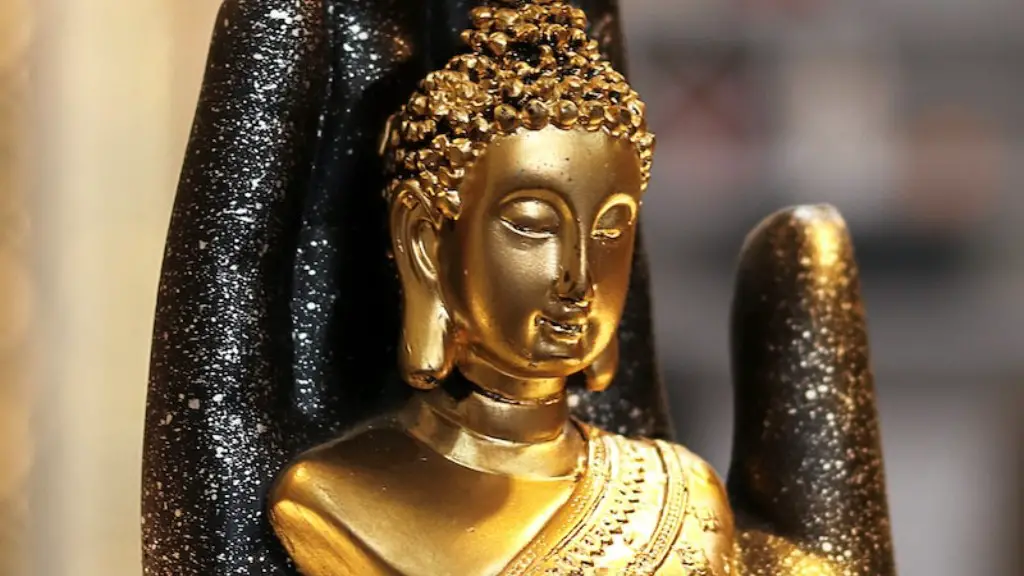Hinduism is a major religion that is predominant in India and is one of the oldest religions worldwide. It is believed to have originated from the Indus Valley Civilization, which is classified as one of the earliest Bronze Age urban settlements in the world. The origin and practice of Hinduism are based on an ancient set of scriptures – the Vedas – which were written around 1500-1200 BC. But who introduced Hinduism to India? In order to answer this question, it is important to understand the major influences that helped form and shape Hinduism as it evolved through time.
Scholars have argued that specific groups of people are responsible for introducing elements of this ancient faith. Some researchers point to the migrating Aryan clans, which are believed to have settled in the region, as early as 1700-1500 BC. Parts of the Rig Veda, an ancient scripture, mention a nomadic Aryan people who established their own religious rites and customs in the region. Similarly, the Arya Samaj, which promotes Vedic culture, also claims that the Aryan settlers brought their religion to India, and strengthened its cultural foundations.
On the other hand, a few researchers and social reformers suggest that the Hindu faith predates the Aryan invasion. This is grounded in the belief that the Indian Indus Valley Civilization, which is said to be one of the oldest in the world, is believed to have its roots in Hinduism. Thus, the religion is believed to have been present in the region for centuries, and has adapted and evolved over the years.
Additionally, some evidence suggests that early Dravidians, who are said to have inhabited the region before the Aryans, practiced an animist religion which was rooted in some Hindu practices and was quite similar to the Shramana movements that focused on asceticism. Buddhists and Jains may also have had a key role in introducing and popularising Hindu practices in India.
It is important to note that the Hindu faith has evolved over many centuries, and gone through several phases and changes. It is impossible to point to a single group or individual as responsible for introducing Hinduism in India. Rather, the Hindu faith has been formed and reinforced through the collective efforts of a variety of people, and by incorporating aspects of various religious and spiritual paths.
Hinduism and its Influence on Indian Culture
Hinduism is closely interwoven with Indian culture and traditions. Though it is impossible to mark the exact period when it was introduced in the country, it has had a lasting impact on Indian society. Over the years, Hinduism has come to shape numerous aspects of the country’s culture including food, fashion, music, art, architecture, literature, and beliefs.
From a cultural perspective, India is predominantly a Hindu nation. Though the country is home to several other religions and beliefs, Hinduism makes up a major portion of India’s population. This is evident in the numerous Hindu temples, festivals, and traditional ceremonies which are a part of life in India. Every region in the country has its own unique set of practices and beliefs, which are rooted in Hinduism.
Furthermore, Indian rulers, including the Mughals and the British, have impacted the nation’s culture, and have also contributed to the evolution of Hinduism. For instance, during their rule in India, the Mughals adapted certain practices of the religion and incorporated them into their own traditions. This can be seen from the Mughal paintings which depict Hindu gods, and the various myths associated with them.
In short, it is difficult to determine exactly who introduced Hinduism in India. It is thought that the Aryan settlers, along with other groups such as Buddhists, Jains, and Dravidians, were responsible for bringing the various aspects of the religion to the country. Though it is unclear when Hinduism was introduced to India, it has become a crucial part of the nation’s culture.
Main Beliefs and Traditions of Hinduism
Hinduism is a unique religious tradition with a range of beliefs and practices. It is based on the belief that everything in the universe is interconnected and divine, and ultimately part of one Supreme Being. Hindus believe in the Vedas – ancient scriptures that contain information which has been passed down from generation to generation.
The ultimate aim of Hinduism is to find unity with the Supreme Being. Hindus believe in reincarnation, and the practice of reincarnation is meant to help them reach closer to their goal. Additionally, Hindus place great emphasis on karma and samsara, which are the cycle of life and death, as well as the cycle of action and consequence. In order to reach liberation, Hindus strive to become free of these two cycles.
Aside from these core beliefs, Hinduism is home to a variety of religious traditions, practices and rituals. Some of these include puja, or devotional services to the various deities, meditation and yoga, chanting mantras, and fasting. Additionally, there are various festivals throughout the year which are celebrated, leading to a vibrant and colourful culture.
Hinduism and Its Relationship To Other Religions
Hinduism has also had a strong influence on other belief systems that emerged in India. Through its scriptures, core beliefs and practices, it has helped shape Buddhism, Jainism, and Sikhism, which are all deeply connected to Hinduism.
For instance, the Buddhism religion was founded on the teachings of Siddharta Gautama, who is thought to have been influenced by Hinduism and its moral values. Similarly, Jainism is said to have heavily borrowed from the Hindu belief in karma and reincarnation. Sikhism, which is a monotheistic religion, is based on some of the main concepts of Hinduism, such as the concept of a single Supreme Being.
Therefore, it is clear that Hinduism has had a significant impact on India’s culture and other religious traditions. Its teachings and beliefs have formed the cornerstone of some of these beliefs. Furthermore, it has been an integral part of life in India, having been practiced and embraced by the nation’s people for centuries.
Symbolism and Philosophy in Hinduism
Hinduism is rich with symbolism and philosophy. Many believe that this symbolism can be found in numerous aspects of the religion – from its art to its rituals. For example, in traditional Hindu art, gods and goddesses are often portrayed with multiple arms, heads and legs which are symbols for their power, strength, wisdom and beauty. Similarly, Hindu sculptures often have intricate carvings and details which have symbolic meaning.
Additionally, Hinduism is also known for its complex philosophical concepts and ideas. Many Hindus believe in karma, which is the concept that the actions that one takes will ultimately determine his or her destiny after they die. Furthermore, Hindus also believe in Dharma, which is the mental and spiritual path that an individual follows to progress spiritually and lead a meaningful life.
In India, these two concepts have been integral in shaping the nation’s philosophy and society. Moreover, Dharma has been used to define the role and duties of a person, which includes not only one’s place in society, but also the nature and extent of their obligations.
Hinduism also has implications for philosophy and metaphysics. For instance, Hindus believe in the concept of Brahman, which is a universal force or energy that pervades all creation. This is an important concept in Hinduism, as it helps explain how the universe works and how we are connected to it.
Conclusion
In conclusion, Hinduism has had a long history in India and has shaped the country’s culture and traditions. Though there is no single group or person responsible for introducing Hinduism in India, various nomadic tribes, rulers, and reformers are believed to have had a major role to play. Furthermore, Hinduism has been embraced by many in India and is still practiced today. It is a faith that has been enriched and transformed by the collective efforts of many people and beliefs over the centuries.



